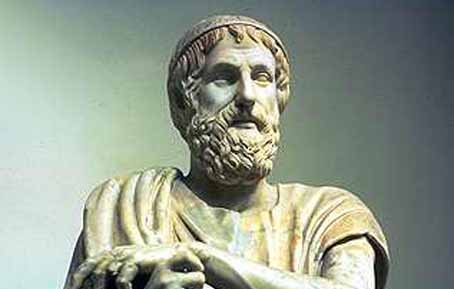Articles about maps
History of cartography
All about topographic maps
Topographic maps and traveling
Two centuries of Russian Cartography
Navigation software and offline maps
History of cartography
Cartographic maps of ancient East
Cartographic maps of ancient Rome
Cartographic pictures of primitive people
Cartography and geography in ancient Greece and Hellenistic countries
Cartography and geography in Armenia and in countries of Arab Caliphate
Cartography in slave-holding China
First Maps
Literature and Astronomy
Pythagoras and first hypothesis about Earth’s size
Strabo and cartography
The development of Russian Topography
The origins of astronomy
The origins of cartography
Why we so many ancient maps diasappear?
Literature and Astronomy
VI BC witnessed an active intellectual activity of the Greeks. Prosaic literature had a huge success. Ionian school of philosophy under the leadership of its founder, Thales of Miletus, made the first tentative attempts to implement a scientific approach to knowledge; appeared first written philosophical discussions. Perhaps the most important object of dispute among philosophers was the Universe itself, its nature, size and value, as well as the role played by our Earth in the general order of things. Many philosophers, like Strabo, came to the conclusion that the science of geography "is not less than any other science is the subject of reflection." In all that has to do with the Earth and its place in the universe, Strabo, as well as the Greek philosophers before him, refers to the first and most authoritative source - to that whose works most closely embodied adopted among the Greeks concept and popular answers. This authority – is no other than Homer, the epic poet. Dates of his life are complete mystery, and his works evoked and caused as many heated debates as the works of William Shakespeare.

If we consider ancient literature on geography and ideas about the world, it turns out that all the books lead to Homer. Strabo calls him the founder of geographical science, "because Homer has surpassed all other people, both ancient and modern, not only by the splendor of his poetry, but by the knowledge about everything that has to do with public life ... And that knowledge made him to study ... the geography of separate countries, and the population of the world as a whole, as the land and the sea; for otherwise he would not have reached the limits of the inhabited world, and would not have covered it all their description. " Strabo carefully studied the works of this great man.
In the world of Homer existed four winds. Boreas, the north wind, blowing from Thrace, it lifted and drove the mighty waves. Horn, south wind ushered in the storm and bring sudden squalls; it was dangerous to mariners. Zephyr, the west wind, too, is often described as a wind storm, but not Homer, which knew the West and knew that the climate is temperate. In addition, on the West is Elysium, and the end of the world.
Since the time of Homer and before the art of prose in Greece there were not professional writers devoted to history and geography, although references to the geographical issues in Hesiod's poetry suggest that in his time this topic remained not entirely unheeded.



